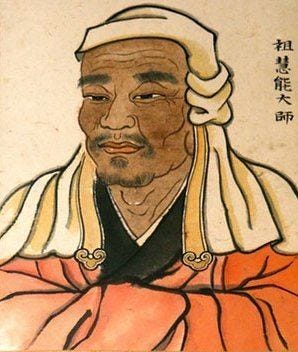“Unsurpassed enlightenment requires that you be able to recognize your own basic mind at a word, and see your own original nature, unborn and undying. When you see yourself at all times, moment to moment, with no lingering over anything at all, as one is real all are real—myriad objects are themselves suchness as is. Consciousness of suchness as is, is real truth.” (p. 9)
“If you want to learn supreme enlightenment, don’t slight beginners. A person of the lowliest rank may have the very highest knowledge, while a person of the highest rank may lack practical wisdom. If you slight people, you will have done incalculable wrong.” (p. 10)
“Who would have expected that inherent nature is originally intrinsically pure? Who would have expected that inherent nature is originally unborn and undying? Who would have expected that inherent nature is originally complete in itself? Who would have expected that inherent nature is originally immovable? Who would have expected that inherent nature can produce myriad things?” (p. 11)
“When you do not think of good and bad, what is your original face?” (p. 13)
“People of the world originally have the knowledge of bodhi (awakening) and prajna (direct insight) within them, but they cannot realize it themselves because of the wandering of the conditioned mind: that is why they need a teacher to point it out and guide them to perception of essential nature. (kensho)” (p. 16)
“The extent of mind is as vast as space, without bounds. It has no squareness or roundness, no largeness or smallness. . . It has no up or down, no long or short. It has no anger and no joy, no right and no wrong, no good and no bad. It has no head or tail. . . The subtle nature of people in the world is originally empty, with nothing that can be grasped. The true emptiness of our inherent nature is also like this.” (p. 17)
“All prajna insight comes from our own essential nature; it does not enter from outside. Don’t misuse your thought and call that the inherent function of intrinsic essential nature.” (p. 17)
“Prajna has no form; the heart of wisdom is it. If you understand it in this way, this is called the knowledge of prajna.” (p. 18)
“If you activate the insight of genuine prajna, in an instant erroneous thoughts all vanish. If you know your own nature, with one realization you immediately reach buddhahood.” (p. 21)
“Enlightenment is our original inherent nature: Excite the mind, and there is confusion. Be pure of mind in the midst of illusions. Just be true, and there are no barriers.” (p. 22)
Cleary, Thomas, trans. The Sutra of Hui-Neng Grandmaster of Zen. Boston & London, Wisdom Publications, 1998.


